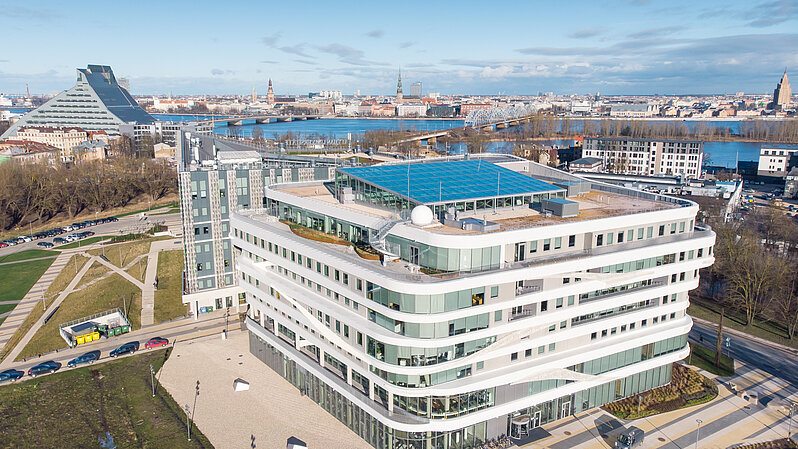About University of Latvia
The University of Latvia consistently retains the position of the national, leading and most influential higher education institution in Latvia. In terms of the total number of students, the University of Latvia is also the largest university in the country. It is the largest comprehensive university in Latvia with a prominent standing both in the development of the entire education system and in the overall growth of the country's economy.
UL is a modern centre of academic and professional studies, which, along with research in natural sciences, humanities, social sciences, technical sciences and medicine provides opportunities to acquire various types and levels of higher education to the residents of Latvia and other countries. UL has a crucial role in the development of society's academic traditions, national economy, education, environment and health protection, Latvian language and culture. The opinion of the University of Latvia substantially contributes to the public administration decision-making.
Scientific activity at the University of Latvia takes place both in faculties and scientific institutes. The University of Latvia conducts research in more than 50 research areas. Scientists from the University of Latvia have developed significant studies that have contributed to the competitiveness of the national economy and the improved quality of life. UL grows as a modern academic institution that provides an environment and infrastructure for outstanding achievements in research, studies and creative endeavours.
UL evolves dynamically – the coming years will see establishment of the study and research centre that will stand among the most modern facilities of Northern Europe – the University of Latvia Academic Centre in Torņakalns. The House of Nature opened its doors in 2015; the House of Science was completed in 2019. Its laboratories are unique both in Latvia and across in the Baltic states. In the coming years, the territory of the Academic Centre will be augmented by the House of Letters, which will be a home to the faculties of humanities and social sciences, institutes and the Library. The subsequent plans involve construction of a Technology Centre, hotels, an academic square, as well as state-of-the-art sports infrastructure, car and bicycle parking.

 Academic Centre
Academic Centre